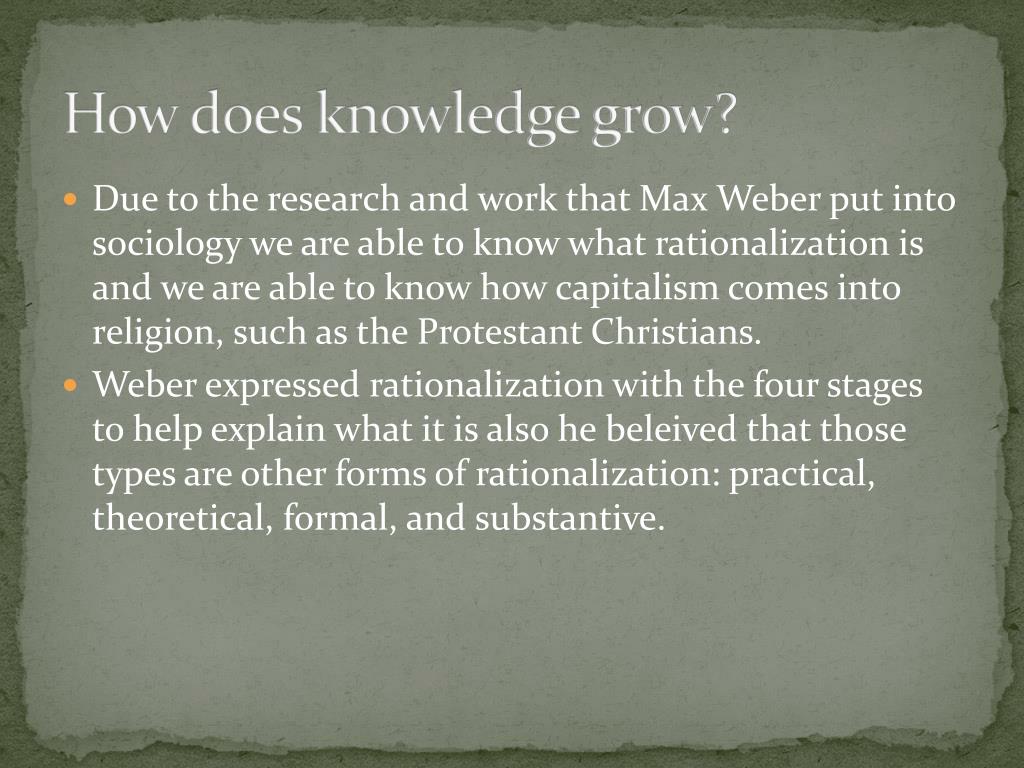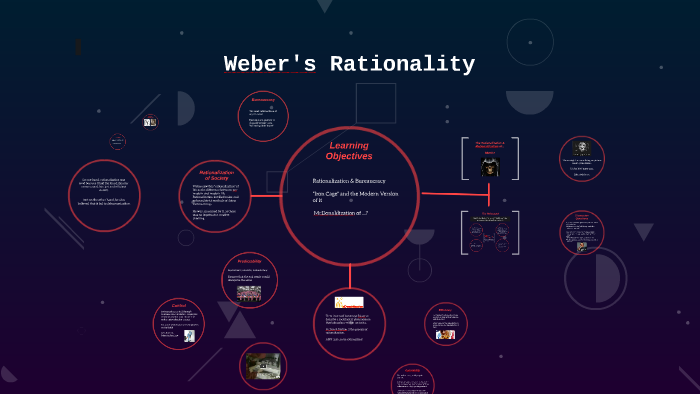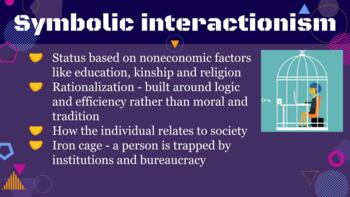Rationalization is a concept in sociology that refers to the process by which societies and individuals replace traditional ways of thinking and acting with more rational and efficient ones. This process has played a significant role in the development of modern societies and has had both positive and negative consequences.
The concept of rationalization was first developed by sociologist Max Weber, who argued that the increasing rationalization of society was a central feature of modernity. According to Weber, rationalization refers to the increasing reliance on reason and calculation as the basis for decision-making, as well as the increasing specialization and efficiency of social and economic organizations.
One important aspect of rationalization is the increased reliance on bureaucratic organizations to manage and coordinate social and economic activity. Bureaucracies are characterized by a hierarchical structure, explicit rules and procedures, and a focus on efficiency and rationality. This has led to the creation of large, centralized institutions such as governments, corporations, and hospitals, which are able to coordinate and manage complex tasks on a large scale.
However, the process of rationalization has also had negative consequences. Some sociologists argue that the increasing reliance on bureaucracy and rationality has led to a loss of community and human connection. Traditional forms of social organization, such as religious and family institutions, have been weakened as people become more individualistic and focused on their own goals. This has contributed to social isolation and a sense of disconnection from others.
Another negative consequence of rationalization is the potential for dehumanization. As organizations become more efficient and focused on achieving their goals, they may prioritize efficiency and profits over the well-being and needs of individuals. This can lead to the exploitation and mistreatment of workers and the neglect of social and environmental responsibilities.
In conclusion, rationalization is a complex and multifaceted process that has played a significant role in the development of modern societies. While it has led to increased efficiency and coordination, it has also had negative consequences such as the loss of community and potential dehumanization. Understanding the impacts of rationalization is important for shaping the direction of social and economic development in the future.
SOCIOLOGY blog.sigma-systems.com

Whether of the corporate or government variety, the bureaucratic organization is very much based on technocratic thinking. People do not reason the same way, which leads to differences in societies. He regards the development of rational forms to be one of the most important characteristics of the development of Western society and capitalism. The world becomes less mystical and more explained. Examples of Bureaucracy in Organizations Government bureaucracies, though perhaps in not quite so single-minded fashion, are similarly structured in a single-minded pursuit of their formal, narrow, technocratic goals. Ideal bureaucracy is characterized by the hierarchy in personality, written rules of conduct, hiring and promotion based on achievement, a specialized division of labor, and, above all, efficiency.
Max Weber Theory of Rationalization 2022

Rejecting the pessimism of Weber, Adorno, and Horkheimer, Habermas argues that the development of both instrumental and communicative rationality can produce not only unprecedented technical achievements, but also the kind of humanity that can utilize those advancements to better itself rather than being enslaved by them. Ultimately, rationalization must lead to dehumanization, the elimination of concern for human values. People wanted more clarity and understanding of society. Charismatic authority is about family, religion, etc. Assess the view that a process of rationalisation has led to secularisation in western societies? Bureaucracy tends to result in an oligarchy or ruled by a few by officials at the top of the organization.
Rationalization Of Sociology

Lexington, MA: Heath, 1973. Weber argues that the religious beliefs of the Calvinist helped bring about a major social change, specifically the emergence of modern capitalism in n northern Europe in the 16th and 14th centuries. Just like in sociology, where things are not what they seem the same goes for the foundation of sociology should be questioned. Weber also did believe in idealism Weber, 2017pp. Weber explained that achieving rationalization in society could lead to efficiency and coordination necessary for controlling social and physical environments.
rationalization

Regarding his contribution towards socialism, Weber's rationalization of society comes into play. First, in order to understand the way rationalization was created in economic, social and political spheres of society, we must understand the definition itself. It has to be modeled, encouraged, and developed over time and experience. In The Philosophy of Money, Simmel 1907 sets out to deal with money as an abstract and universal system that provides a fundamental model of the rationalization process. For it were the individualistic, systematic and rationalised conduct and values of the protestant ethic that harboured the attitude needed to create economic success and ultimately the success of the industrial revolution. Rationalization was first seen in the creation of bureaucracies Wikipedia,"Rationalization of Society" This idea was a concern to sociologist and others because it had a negative and dehumanizing effect on society, moving modernity away from the central tenets of enlightenment. Rationalization was a critical factor in the rise of …show more content… Different theories are introduced while old unpopular theories disappear.
Rationalization

He used the idea of bureaucracy as an example of rationalization, where officials make imperative decisions concerning a state. In 1990, she became the emcee for the annual Wise Use Conference. The movie A Time To Kill is a perfect example of all of these things. People used to believe in magic and used this to explain things happening in the world; then, they use religious stories to come to a better understanding of the world. Rationalization does encourage the irrational as well as unacceptable behavior, motives as well as feelings. However, consuming whatever you have been a sign that you were not one of the choice who would be led to Heaven 67.






